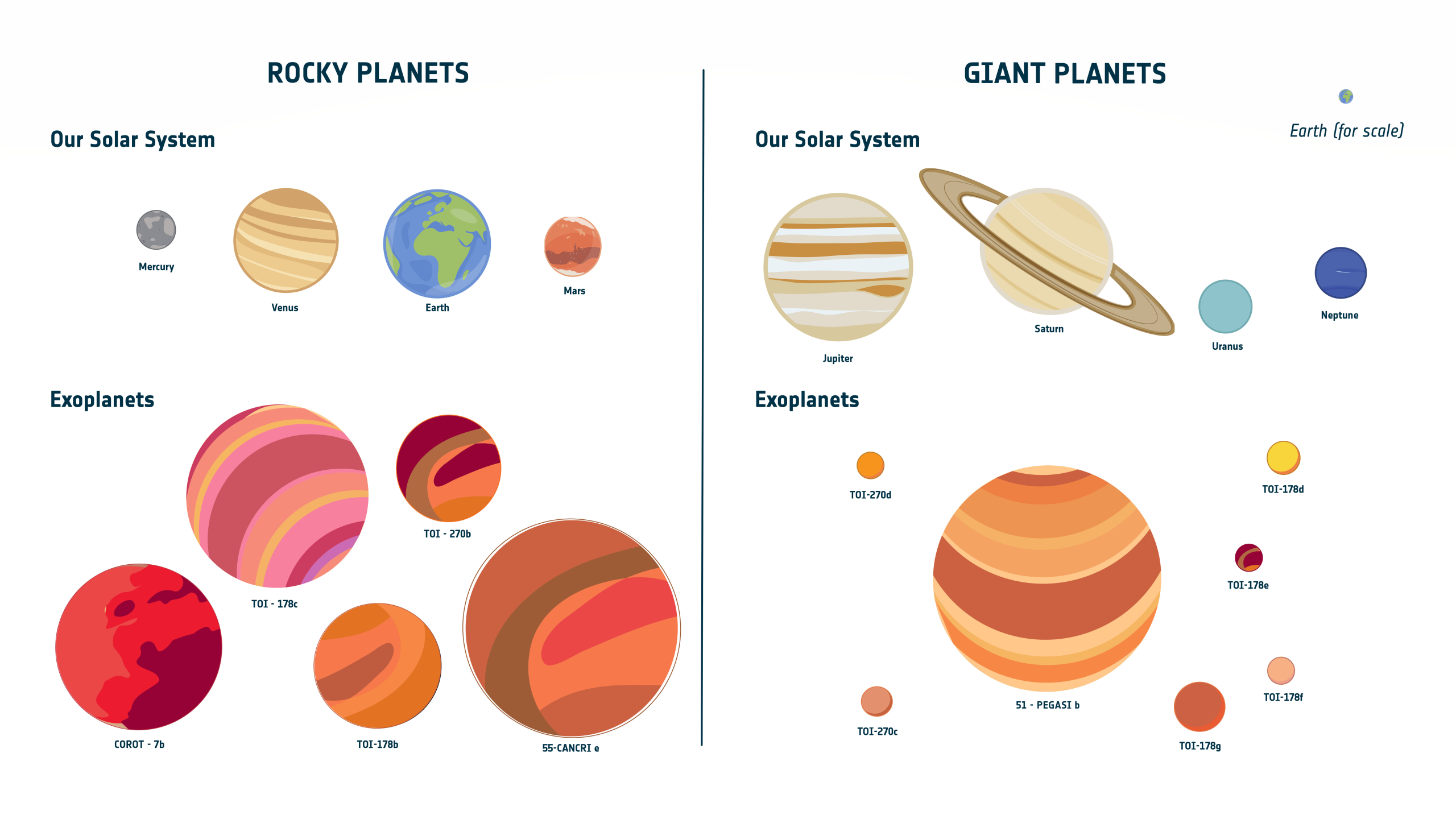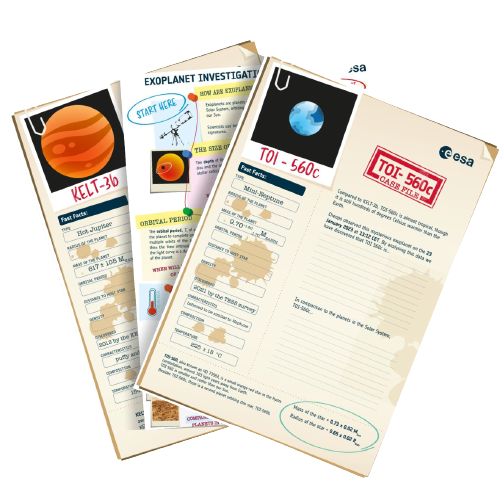
Step 5 – Composition
In our Solar System, planets are usually divided into two categories: rocky and gaseous. However, exoplanets can be very different from the neighbouring planets we are used to. The mass, M, of an exoplanet cannot be determined from the transit method, but other methods like radial velocity can. When both the mass and radius of a planet are known, we can estimate the density, ρ, and composition of the exoplanet.
ρ = [katex]\frac{\text{M}}{\text{V}}[/katex]
where V is the volume of the exoplanet. To calculate the volume of the exoplanet, assume it is a perfect sphere with radius R:
V = [katex]\frac{4}{3}\pi{\text{R}^3}[/katex]

Watch the video on exoplanet density and composition
Subtitles are available (automatically generated by YouTube) – select your language using the YouTube player controls.
Ready to see the solution?
Have you discussed the composition of the exoplanet? Check below to see whether your conclusions matched our expert’s solution for determining the composition of KELT-3b.
Let’s now discuss KELT-3b as an example.
Figure 1: Examples of artists’ impressions of real exoplanets that have already been discovered orbiting nearby stars.
KELT-3b’s mass is 617 MEarth. This value is not possible to determine from transit photometry. It was determined from previous observations using a different technique called radial velocity.
We have already determined the radius of KELT-3b from the Cheops data and light curve. By knowing the radius, we can calculate the volume of the exoplanet, assuming it is a perfect sphere:
V = [katex]\frac{4}{3}\pi{\text{R}^3}[/katex]
Mp = 617 MEarth = 3.685 x 10 30 g
Rp *= 17.5 REarth = 1.116 x 10 10 cm
* This radius value was estimated from the transit depth calculation, you can also use the allesfitter best fit model value.
ρ = [katex]\frac{\text{M}}{\text{V}}[/katex] = 0.63 g [katex]\text{cm}^{-3}[/katex]
This value is much smaller than the mean density of Jupiter, and closer to the density of WASP-189b (a known hot Jupiter exoplanet). The small distance to its host star and its high temperature makes the exoplanet ‘puffy’.
What is the density of your exoplanet? What do you think its composition is? How does your exoplanet compare to Earth and the other planets in the Solar System?
Congratulations! Mission accomplished!
Your Investigation Progress
100%
Have you analysed the data and discussed the composition of your exoplanet? Congratulations detective, you have successfully hacked the Cheops data!
Now you can choose to continue your investigation with the exoplanet TOI-560c by returning to the Challenge Overview page, or submit your project to receive a participation certificate.

Congratulations exoplanet detective, you completed the investigation!
Do you want to learn more about exoplanets?
Find out below what else you can do







